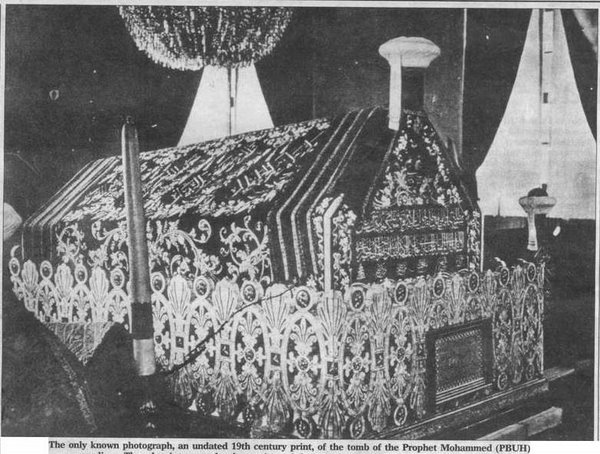What is the Tariqah Tijaniyya?
The Tariqah Tijaniyya is one of the major Tariqahs in the world; however it is unknown to many, and thus remains a hidden gem. From the time of the Noble Prophet (peace be upon him), masters of the prophetic spiritual science have established orders or tariqahs, which encapsulated their teachings and ways of ascent to the purification of the heart and divine knowledge of Allah (exalted is He).
Allah (exalted is He) says in His Glorious Qur’an:
“O ye who believe! Do your duties to Allah, seek the means of approach onto Him, and strive with might and main in His cause that ye may prosper.” 5:38.
Many Muslim are content to fulfill the rights of the Shari`ah and this is a blessed path, but throughout history some have sought to become closer to Allah (exalted is He), through spiritual exercises found in the Sunna. These exercises included Zikru Lah (remembrance of Allah), IstagfiruLah (seeking forgiveness from Allah), and Salat ala an-Nabi (sending prayers upon the Prophet). As for the first, Zikru Lah, Allah has said:
"Then do ye remember Me; I will remember you". (2:152)As for IstaghiruLah, Allah has said:
"Be ye foremost in seeking forgiveness from your Lord". (57:21)Additionally the Prophet (peace be upon him) is reported to have asked for forgiveness more than one hundred times a day. Finally, for the third, Salat ala an-Nabi, Allah has said:
“Allah and His angels send blessings on the Prophet: O ye that believe! Send ye blessings on him, and salute him with all respect.” (33:56)The Prophet (peace be upon him) also said, "Whoever offers one prayer on me, Allah will offer ten on him; if' he makes it ten, Allah will make it one hundred for him, if he makes it one hundred, Allah will make it one thousand for him, if he makes it a thousand, he will enter paradise shoulder to shoulder together with me".
Using these tools provided by the Sunna of the Prophet (peace be upon him) a Muslim is able to grasp the outward and inward aspects of the prophetic teaching, and insha Allah, purify his heart and reach closeness to Allah. Using these tools a Muslim can reach the status of Walliu Lah, or friend of Allah (exalted is He). Throughout the ages, the spiritual masters have reached this stage and then established the criteria for others to attain the same rank.
Shaikh Ahmed at-Tijani (may Allah be pleased with him) was one such master. In fact he was the Master of Masters. Born in 1739 in a small village in Algeria, the Shaikh devoted his childhood and adulthood to learning the divine Shari’ah, as well as the inward aspects of Islam. Through his diligence and piety he was given the gift of reaching two distinguished positions during the second half of his life. The first was al-Qutb al-Maktum, the Hidden Pole. In every era there is a pole, or a center from which all the Wallis on earth derive their inspiration. Shaikh Tijani was given this position. The Second was the Khatm al-Wilaya, the Seal of the Wallis. This did not mean that he was the last of the Wallis; rather it meant that no Walli after him would reach the height and grandeur of his status.
All this was conferred to the Shaikh by one of the greatest gift given by Allah (exalted is He), the sight of the Prophet Muhammad (peace be upon him). It is reported in Bukhari and Muslim that the Prophet (peace be upon him) said, “Whoever sees me in a dream has seen me in reality because Shaytan cannot take my form". In another report he said, "Whoever sees me in a dream will see me in reality". While in spiritual retreat in the Sahara Desert, Shaikh Tijani was visited by the Prophet Muhammad (peace be upon him), who confirmed his status and relayed to him the Tariqah that came to bear his name.
The Tariqah is based on the three tools mentioned above. Emphasis is placed on following the Shari’ah, meaning completing the daily Salat in a group, fasting in the month of Ramadan, making Hajj and paying Zakat, which are the pillars of Islam. Followers of Shaikh Tijani must persevere in daily Zikru Lah, Salat ala an-Nabi and IstagfiruLah. With Allahs grace using these tools the worshiper will achieve closeness to Allah. In a Hadith Qudsi Allah said, "I live in the thought of my servant as he thinks about Me, and I Am with him, as he remembers Me. If he remembers Me in his heart, I also remember him in My heart, and if he remembers Me in an assembly, I remember him in an assembly, better than his, and if he draws near Me by the span of a palm I draw near him by the span of an arm, and if he draws near to Me by the span of an arm I draw near him by the span of two arms. If he walks towards Me, I rush towards him". (Sahih Muslim).

